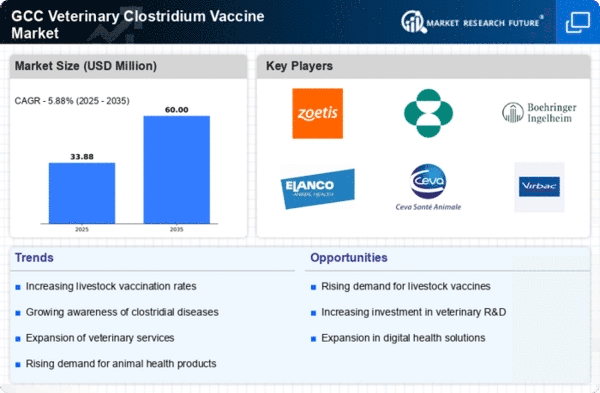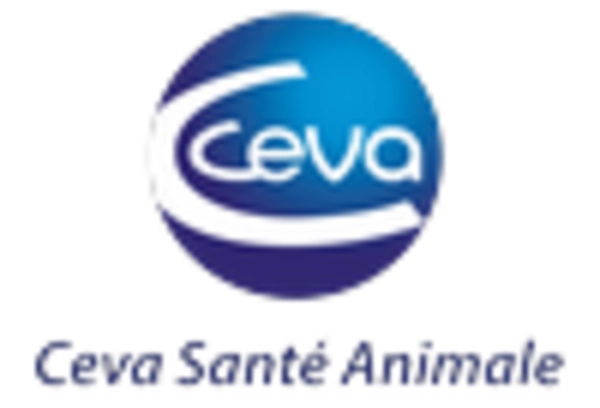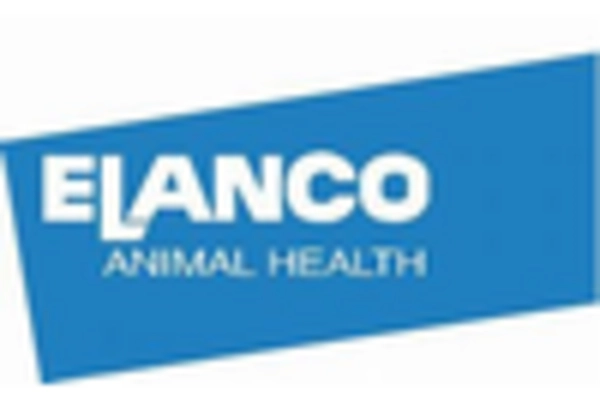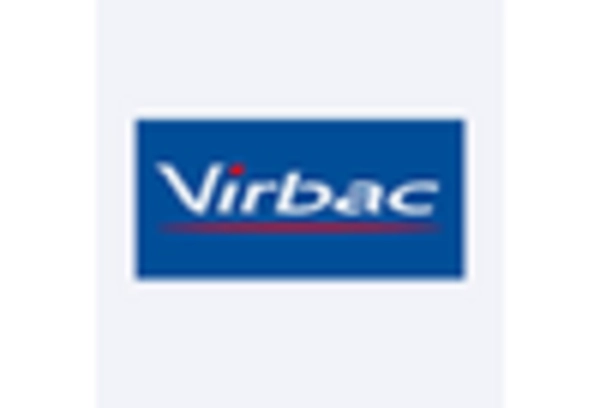Growing Livestock Industry in GCC
The livestock industry in the GCC is experiencing robust growth, driven by increasing demand for meat and dairy products. This expansion is a significant driver for the veterinary clostridium-vaccine market, as livestock are particularly susceptible to clostridial infections. The GCC region's livestock population is projected to grow, which may lead to a higher incidence of diseases if preventive measures are not implemented. Consequently, farmers are likely to invest in vaccines to safeguard their herds, thereby boosting the veterinary clostridium-vaccine market. The economic implications of livestock health are profound, with potential losses from disease outbreaks prompting a proactive approach to vaccination.
Advancements in Vaccine Technology
Technological advancements in vaccine development are poised to transform the veterinary clostridium-vaccine market. Innovations such as recombinant vaccines and adjuvant technologies are enhancing vaccine efficacy and safety. These advancements may lead to the introduction of more effective vaccines that require fewer doses, thereby appealing to both veterinarians and pet owners. The GCC region is likely to see increased investment in research and development, as companies strive to stay competitive in the veterinary clostridium-vaccine market. As a result, the availability of advanced vaccines could lead to higher vaccination rates among livestock and pets, ultimately improving overall animal health and reducing the incidence of clostridial diseases.
Rising Pet Ownership and Veterinary Care
The trend of rising pet ownership in the GCC is contributing to the growth of the veterinary clostridium-vaccine market. As more households adopt pets, there is an increasing awareness of the importance of veterinary care, including vaccinations. Pet owners are becoming more informed about the risks associated with clostridial infections, leading to a higher demand for preventive vaccines. The veterinary clostridium-vaccine market is likely to benefit from this trend, as veterinary clinics expand their services to include comprehensive vaccination programs. The financial commitment to pet health is also growing, with pet owners willing to spend more on preventive care, which may further drive market growth.
Regulatory Support for Vaccine Development
Regulatory bodies in the GCC are increasingly supporting the development and approval of veterinary vaccines, including those targeting clostridial diseases. This support is crucial for the veterinary clostridium-vaccine market, as it streamlines the approval process and encourages investment in research and development. The GCC governments have recognized the importance of animal health in ensuring food security and are likely to provide funding and resources to facilitate vaccine innovation. As a result, the market may experience accelerated growth, with new vaccines entering the market more rapidly. This regulatory environment fosters a competitive landscape, potentially leading to lower prices and improved vaccine efficacy.
Increasing Incidence of Clostridial Infections
The rising incidence of clostridial infections among livestock and companion animals is a primary driver for the veterinary clostridium-vaccine market. In the GCC region, outbreaks of diseases such as Clostridium perfringens and Clostridium tetani have been reported, leading to significant economic losses in the agricultural sector. The veterinary clostridium-vaccine market is projected to grow as farmers and pet owners seek preventive measures to protect their animals. The economic burden of treating these infections can be substantial, with costs potentially reaching thousands of dollars for each outbreak. Consequently, the demand for effective vaccines is likely to increase, prompting manufacturers to innovate and expand their product offerings.
















